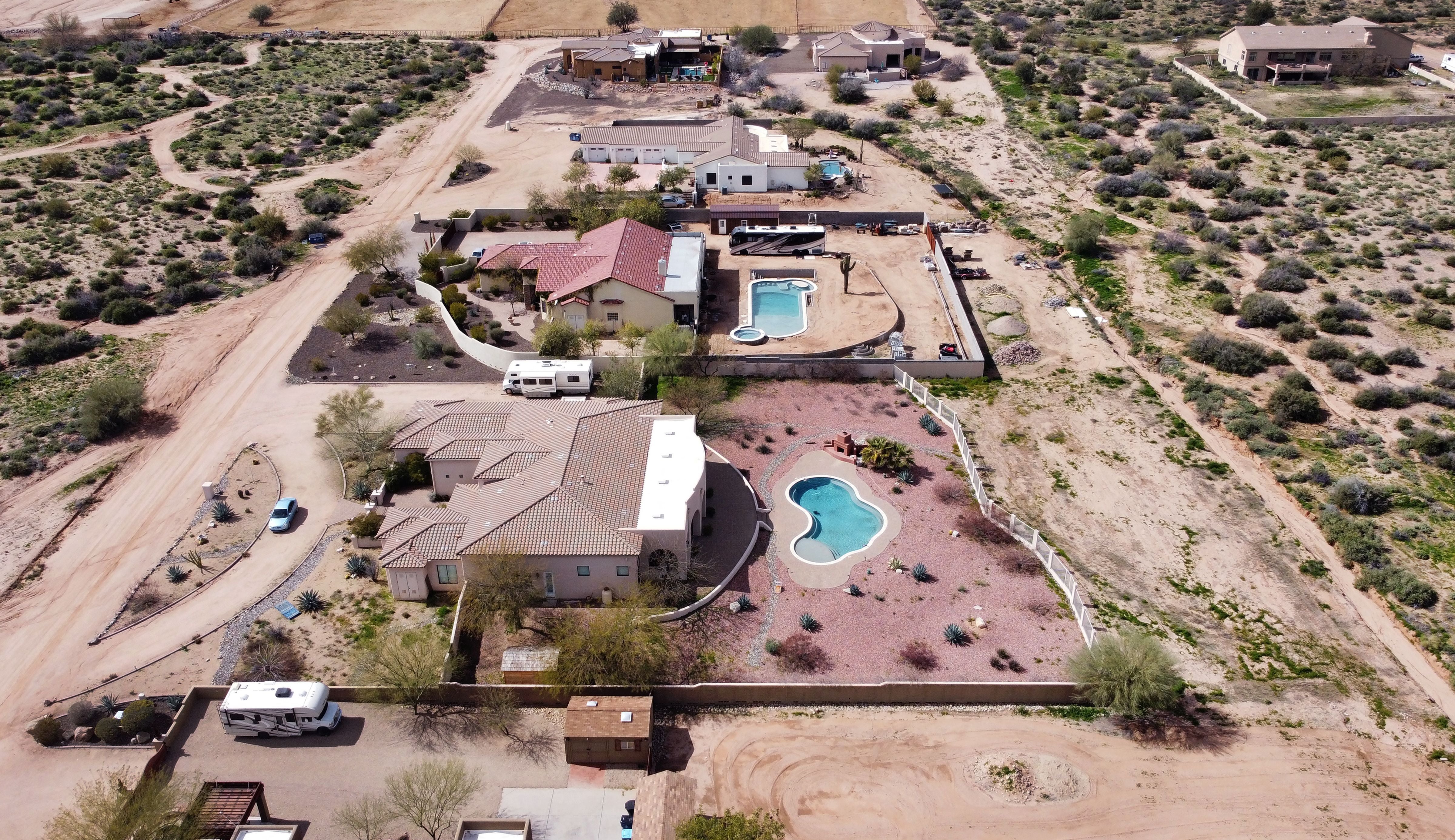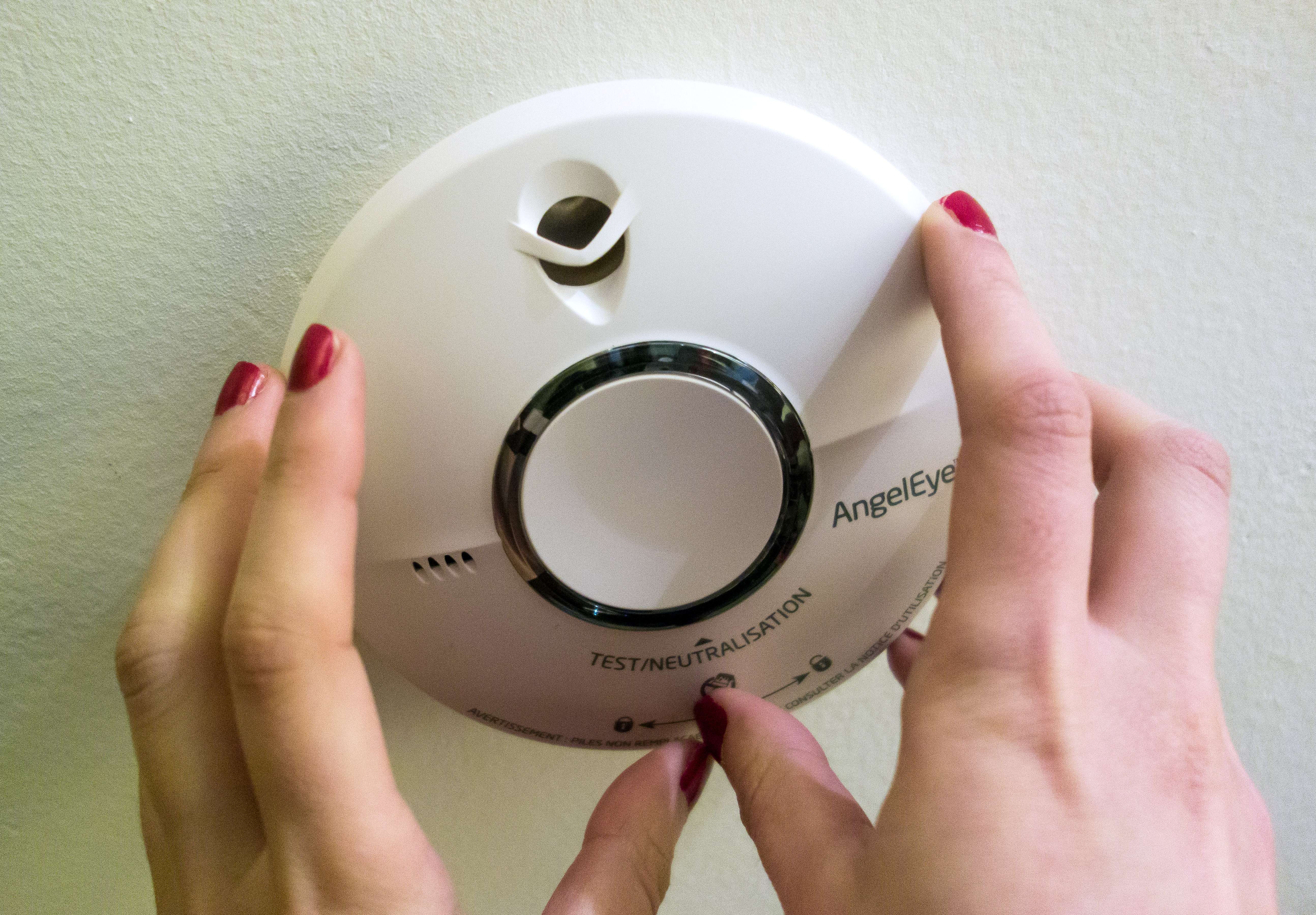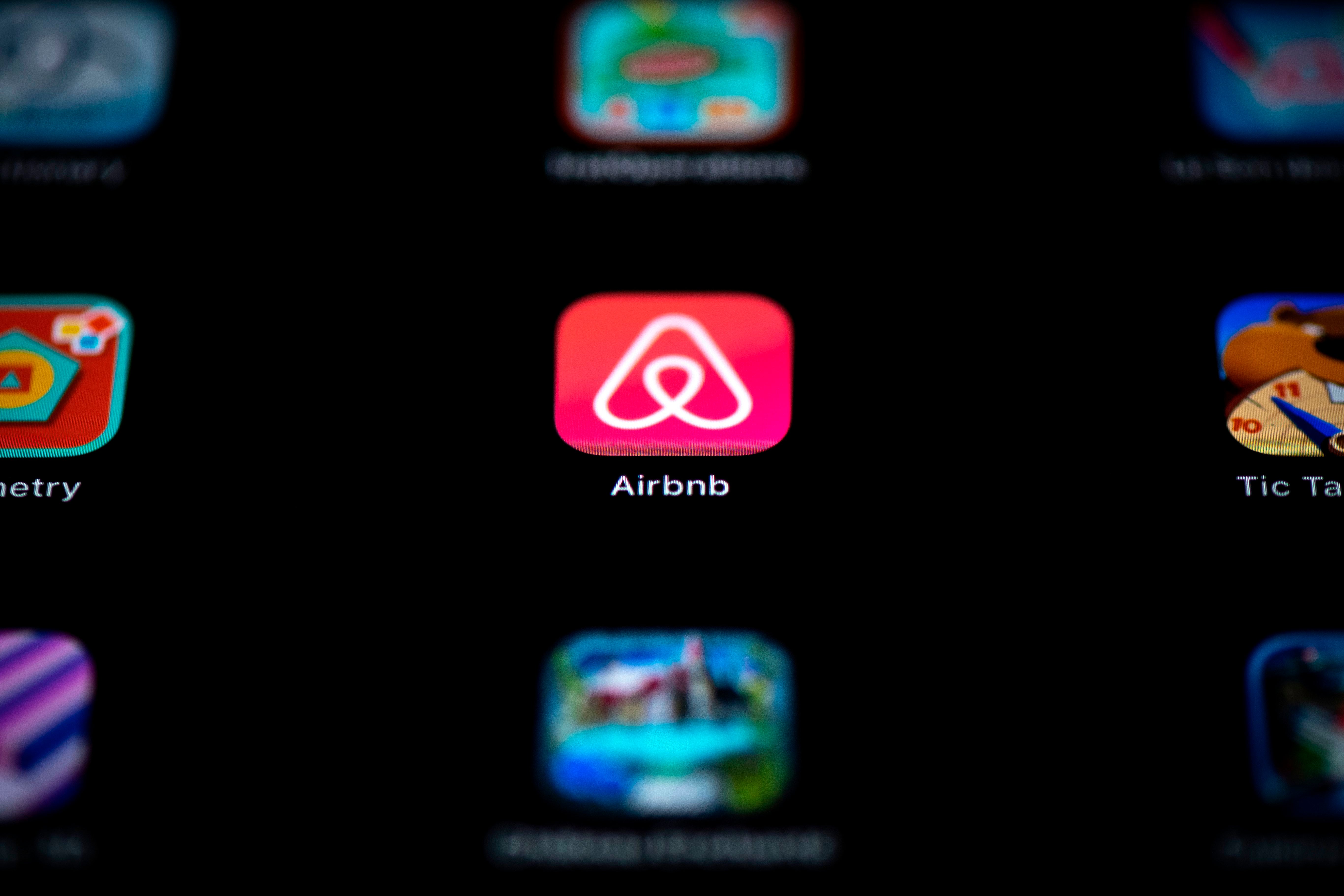A married couple enjoyed an ‘intimate moment’ at their Airbnb. Then they discovered a hidden camera above the bed
Exclusive: Eliot and Nancy Young say they found a memory card in the spy cam that contained videos of past renters dating back to 2020

An Arkansas couple vacationing at a Scottsdale, Arizona, Airbnb say they “enjoyed an intimate moment” on their first evening in the home, only to discover a hidden camera above the bed the following morning, according to a gut-wrenching federal lawsuit obtained by The Independent.
Eliot and Nancy Young, whose teenage children were staying in the next room, subsequently found a memory card in the spy cam that contained videos of past renters dating back to 2020, the suit contends. It claims the pair also located “devices that [they] believed could livestream what had transpired the night before,” prompting them to contact local police.
Attorney Joseph Brown, who is representing the Youngs, told The Independent that he has reached out to Airbnb and the homeowner multiple times, but is yet to receive any response.
“It’s horrible,” he said of his clients’ experience. “You go away on vacation and you don’t expect to be violated. The whole purpose of renting a house is to have the freedom of being in a home and not a hotel room, and not to think that somebody is using you for their own personal gratification. It’s scary.”
Guests at Airbnb properties across the globe have gone public with their own horror stories about surveillance cameras capturing their most personal moments. In 2023, a pair of newlyweds honeymooning at an Airbnb in Malaysia notified law enforcement after allegedly spotting a camera hidden in a wall socket. That same year, a man staying at an Airbnb in Wales discovered a secret webcam tucked between two sofa cushions, surveilling the entire living room. In another shocking violation, a New Zealand family staying at an Airbnb in Ireland found their every move being broadcast on a livestream, via multiple cameras concealed throughout the home.

In March 2024, Airbnb banned the use of indoor security cameras at all of its listings, worldwide. Privacy advocates hailed the move as a win for travelers, with one deeming the widespread availability of hidden cameras, which can be purchased online for as little as $20, as “ripe for abuse.”
On Thursday, an Airbnb spokesperson told The Independent, “Hidden cameras have always been and will always be banned on Airbnb, and issues are exceptionally rare. We supported the guest and suspended the host from the platform last year, and we stand ready to assist law enforcement with any investigation into this allegation.”
When the Youngs booked an Airbnb in Scottsdale last year, they planned on staying there for five days, according to their lawsuit. After paying nearly $2,800 to rent the 6-bed, 5-bath house in the city’s Paradise Heights section, the family of four arrived at around 4:30 p.m. on March 15, the suit says.
“After some time in the home, Plaintiffs Eliot and Nancy Young went to bed in the primary room and the minor children went to different bedrooms,” the suit goes on. “While in the primary room, Plaintiffs Eliot and [Nancy] Young enjoyed an intimate moment.”
While lying in bed the next morning, Eliot, 50, “noticed a ‘smoke detector’ oddly placed directly above the bed,” the suit continues. “As he laid there… [he] became more puzzled by the location of the ‘smoke detector’ and decided to investigate further.”

That’s when Eliot, a retired police officer, realized the “smoke detector” was in fact a disguised WiFi-enabled camera with remote access, according to the suit, which says the device boasted night-vision capabilities.
He immediately “became very concerned because he and his wife had been intimate and was worried that pictures or video of him and his wife had been captured without their consent,” the lawsuit states. It says Eliot removed the camera’s SD card and “discovered several videos containing recordings involving several different individuals,” taken over the previous four years.
Nancy, 46, immediately contacted Airbnb customer support about the concealed camera, and she and Eliot also reported it to the Scottsdale Police Department, the suit says. Not only were they worried about their own activities having been recorded, they were concerned their kids’ movements had been, too.
In a statement, the Scottsdale PD said officers reviewed the videos and found they showed no renters, but “only the homeowner and his acquaintances.” The footage was time-stamped with dates falling between September 2020 and November 2020, the PD said, adding that the department immediately contacted Airbnb to delist the property, which was not licensed with the city for short-term rentals.
“It is not illegal to have a camera in the house,” the statement said. “It is illegal to film people without their permission when the person has an expectation of privacy (bedrooms, bathrooms, etc), but we have no evidence this was done to any renters.”
Members of the Young family were not seen in any of the videos, according to the cops.
“Since the original male who found the SD cards is not on the videos, he was not a victim of the surreptitious recording, and the cameras he located are a civil issue between him and the short-term rental agreement,” the statement said. “Officers tried to contact the homeowner numerous times but he has not answered.”
Still, the two set out to find alternative lodging for the remainder of their trip, and checked out the following day, according to the suit. (A source with knowledge of the case said Airbnb was never contacted by law enforcement about the incident.)

Over the past 10 years, Airbnb opened some 35,000 customer support tickets for guest complaints about surveillance devices, the suit states. It slams Airbnb for having “failed to investigate these complaints,” and claims the company “failed to notify law enforcement about the hidden cameras, which severely hinders criminal investigations.”
“Upon information and belief, despite this knowledge, the Airbnb Defendants did nothing to ensure that hosts did not install video recording devices inside homes, including bedrooms and bathrooms,” the lawsuit alleges. “Airbnb had a duty to ensure that such devices were not being used at rentals listed on the Airbnb website.”
The Youngs were forced to shell out additional funds to rent another home, plus “travel expenses, expenses in moving from the residence to another location, and other monetary expenditures,” according to the suit.
They are seeking financial judgment, in an amount to be determined by the court, for economic damages, emotional distress, loss of enjoyment during their vacation, and embarrassment.
According to the Scottsdale Police Department, the case is still under active investigation, and investigators are asking anyone who believes they were recorded, or might have visited the residence between September 2020 and November 2020, to call 480-312-TIPS.
Bookmark popover
Removed from bookmarks